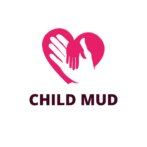In the vast realm of parenting styles, neglectful parenting often lurks in the shadows, unnoticed until its effects surface in a child’s behavior. This style, characterized by a lack of emotional involvement and inadequate attention to a child’s needs, can have lasting repercussions.
Understanding neglectful parenting is crucial for parents, educators, and caregivers alike. It’s not always about overt abuse or neglect, but sometimes subtle signs that are easy to overlook. This article aims to shed light on these signs, providing clear examples of neglectful parenting to help you identify and address this issue effectively.
So, whether you’re a parent seeking to enhance your parenting skills, or a concerned individual aiming to support those around you, this exploration into neglectful parenting will offer valuable insights. Let’s delve into the world of parenting, where love and care should be the guiding stars, but unfortunately, sometimes they’re not.
Neglectful Parenting Examples
 Cementing the understanding of neglectful parenting involves an in-depth look into its definition, characteristics, and the consequential psychological impact on children. Neglectful parenting, sometimes known as “uninvolved parenting”, encapsulates a parenting approach marked by limited emotional involvement and insufficient attention to a child’s essential needs. Characteristics of neglectful parenting include aloofness, inadequate supervision, lack of interest in the child’s academic life, and shortage of direction and guidance. This style includes parents who may be overly absorbed in their problems, whether they are personal, professional, or social, thereby neglecting the child’s needs. Importantly, it’s not categorized by an active rejection or hatred but rather an oblivious or apathetic approach towards the child’s requirements and milestones.
Cementing the understanding of neglectful parenting involves an in-depth look into its definition, characteristics, and the consequential psychological impact on children. Neglectful parenting, sometimes known as “uninvolved parenting”, encapsulates a parenting approach marked by limited emotional involvement and insufficient attention to a child’s essential needs. Characteristics of neglectful parenting include aloofness, inadequate supervision, lack of interest in the child’s academic life, and shortage of direction and guidance. This style includes parents who may be overly absorbed in their problems, whether they are personal, professional, or social, thereby neglecting the child’s needs. Importantly, it’s not categorized by an active rejection or hatred but rather an oblivious or apathetic approach towards the child’s requirements and milestones.
Neglectful parents, however, might disregard the issue entirely, missing an opportunity to support their child’s academic development. Unlike authoritative parents who exhibit an active interest in their children’s lives, neglectful parents remain indifferent and unresponsive, causing a severe impact on a child’s emotional and cognitive growth.
Real-Life Neglectful Parenting Examples
 Real-life instances of neglectful parenting augment understanding of this parenting style’s actual impact. Extracted from court documents, clinical studies, and personal narratives, these instances paint a vivid picture of the pervasive effects of uninvolved parenting.
Real-life instances of neglectful parenting augment understanding of this parenting style’s actual impact. Extracted from court documents, clinical studies, and personal narratives, these instances paint a vivid picture of the pervasive effects of uninvolved parenting.
Case studies and personal narratives provide concrete instances of neglectful parenting. For example, in a clinical study by Johnson and Wolke (2013), a participant recounted episodes of being left alone consistently as a child. The parents, absorbed in their pursuits, would often forget to prepare meals for the children. This example encapsulates two elements of neglectful parenting – inattention to a child’s basic needs and lack of emotional involvement.
In another case, a UK based charity, National Society for Prevention of Cruelty to Children (NSPCC), reported a child named Emma (name changed for privacy). Emma’s mother exploited her lack of presence by leaving her alone for extended periods, including overnight. This example demonstrates a glaring absence of supervision, representative of neglectful parenting.
Legal systems worldwide have responded assertively to instances of neglectful parenting. For instance, under the Child and Family Services Act in Ontario, Canada, neglect is defined as the failure to provide for a child’s basic needs. Failure to comply can lead to the court’s involvement and potential removal of the child from the parental home. This specific law underlines the seriousness with which such parenting behavior is treated legally.
Comparison With Other Parenting Styles
 This section presents a comparative analysis between neglectful parenting and other prominent parenting styles. This comparison underscores the unique attributes and repercussions of each style, offering insights into their effects on a child’s development.
This section presents a comparative analysis between neglectful parenting and other prominent parenting styles. This comparison underscores the unique attributes and repercussions of each style, offering insights into their effects on a child’s development.
Authoritative parenting, contrasting strongly with neglectful parenting, demonstrates high responsiveness and high demands. Parents practicing this style establish rational, clear, and consistent rules in unison with warmth and affection. In addition, they engage in open dialogue with their children, giving them the freedom to express their views. For example, in situations where a child struggles with homework, an authoritative parent might guide them through the task, encouraging independent thought and problem-solving skills.
Neglectful parents, however, might disregard the issue entirely, missing an opportunity to support their child’s academic development. Unlike authoritative parents who exhibit an active interest in their children’s lives, neglectful parents remain indifferent and unresponsive, causing a severe impact on a child’s emotional and cognitive growth.
In contrast, neglectful parents would not show concern about their child’s eating habit or health at all. This absence of parental oversight can lead to health problems and ingrained negative lifestyle behaviors in children.

